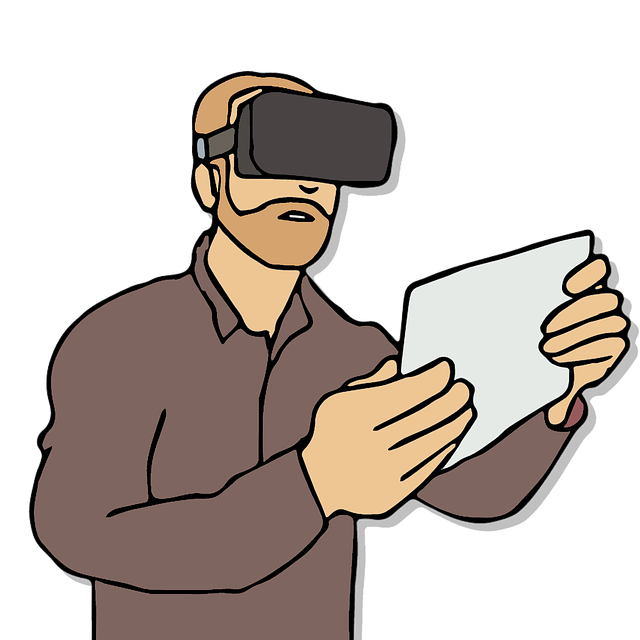Virtual therapy sessions have transformed mental healthcare by offering convenient, accessible, and effective counseling alternatives. Facilitated through video conferencing platforms, these sessions break down geographical barriers, provide flexibility, and ensure privacy. Especially beneficial during global health crises, virtual therapy allows individuals to receive professional support from home while maintaining daily routines. The future looks bright with innovative technologies like AI-powered chatbots and machine learning algorithms personalizing treatment plans. However, ethical challenges such as confidentiality, communication styles, accessibility, and cultural sensitivity must be addressed. Effective virtual therapy requires strategic shifts, clear communication channels, and customized experiences to foster engagement and successful outcomes. Overcoming barriers through technological support and open communication enhances the effectiveness of virtual therapy sessions, expanding access to mental health services for a broader audience.
Remote psychological counseling, also known as online or virtual therapy, is transforming mental healthcare by making professional support accessible from anywhere. This modern approach leverages technology to bridge geographical gaps, enabling clients to participate in therapeutic conversations via video calls and secure messaging platforms. In this article, we explore the growing popularity of virtual therapy sessions, delving into their benefits, ethical considerations, effective strategies, challenges, and integration into mainstream healthcare.
Understanding Remote Psychological Counseling: A Modern Approach

In today’s digital era, remote psychological counseling, or virtual therapy sessions, has emerged as a game-changing approach to mental health support. This modern method allows individuals to access professional therapeutic services from the comfort of their homes, eliminating geographical barriers and providing convenience and flexibility. Through video conferencing platforms, clients can engage in one-on-one conversations with licensed therapists, making it an effective alternative to traditional in-person counseling.
Virtual therapy sessions offer a range of benefits, including increased accessibility for those in remote areas or with limited mobility. It also caters to individuals who prefer the privacy and convenience of home-based consultations. Moreover, this approach has proven particularly valuable during global health crises, enabling social distancing while still ensuring continuous mental health care.
The Benefits of Virtual Therapy Sessions for Mental Health

In today’s digital era, virtual therapy sessions have emerged as a game-changer in the field of mental health support. This innovative approach allows individuals to access counseling and psychotherapy from the comfort of their own homes, offering numerous advantages for those seeking help. One of the key benefits is increased accessibility; people living in remote areas or with limited mobility can now connect with therapists without facing geographical barriers. This accessibility extends to individuals who might feel hesitant or anxious about attending in-person sessions, providing a safe and convenient alternative.
Additionally, virtual therapy sessions enhance flexibility. Clients can schedule appointments at times that align with their daily routines, making it easier to maintain consistency. Online platforms also often provide recordings of sessions, enabling clients to revisit discussions and reflect on progress. This accessibility and convenience have proven particularly valuable during global health crises, allowing for continuous care without interruption.
Technologies Shaping the Future of Remote Psychological Services

The future of remote psychological counseling is being shaped by innovative technologies, particularly in the realm of virtual therapy sessions. Video conferencing platforms and secure messaging apps allow for real-time interactions between therapists and clients, breaking down geographical barriers. These tools enable face-to-face conversations, crucial for building rapport and trust, even when clients cannot physically visit a therapist’s office.
Additionally, artificial intelligence (AI) and machine learning are emerging as game changers in this field. AI-powered chatbots can provide initial assessments and support, while machine learning algorithms analyze vast amounts of data to personalize treatment plans. Such technologies enhance accessibility by offering around-the-clock services and tailoring interventions to individual needs, making virtual therapy sessions more effective and efficient.
Ethical Considerations in Online Psychotherapy Practices

The rise of remote psychological counseling, facilitated by virtual therapy sessions, brings a host of ethical considerations to the forefront. As therapists and clients connect via digital platforms, maintaining confidentiality becomes paramount. Therapists must ensure secure online environments, safeguard sensitive information, and establish clear boundaries to protect both parties. The absence of physical presence can also impact the therapeutic relationship; therapists need to adapt their communication styles to foster trust and connection, ensuring effective treatment despite the virtual setting.
Another key ethical concern revolves around accessibility and equity. Virtual therapy sessions must be inclusive, catering to individuals with diverse technological skills and access. Therapists should offer alternative methods for those unable to engage fully online, ensuring no one is left behind in seeking mental health support. Additionally, cultural sensitivity is essential; therapists need to be aware of potential digital divides within different communities and adapt their practices accordingly.
Effective Strategies for Conducting Successful Virtual Therapy Sessions

Conducting effective virtual therapy sessions requires a shift in traditional practices, but with the right strategies, online counseling can be just as successful, if not more so. Firstly, establishing clear communication channels is vital. Using secure video conferencing tools ensures patient privacy and encourages open dialogue. Therapists should also set specific goals for each session and share these with the client to ensure alignment and focus. This structured approach fosters a sense of normalcy and engagement.
Additionally, creating a comfortable and supportive virtual environment is essential. This can be achieved by maintaining a clean, uncluttered background during video calls and using warm lighting. Therapists should also encourage clients to share their physical spaces, allowing for a more personal connection. Customizing the therapy experience through these adaptations can enhance the therapeutic alliance, making virtual therapy sessions as effective as in-person ones.
Overcoming Challenges and Barriers to Accessing Remote Counseling

Overcoming Challenges and Barriers to Accessing Virtual Therapy Sessions
While remote psychological counseling offers numerous benefits, such as increased accessibility and convenience, there are still challenges that individuals may face when seeking virtual therapy sessions. One of the primary obstacles is technological barriers—unreliable internet connections or outdated devices can hinder participation in online counseling. Additionally, some clients might struggle with feelings of isolation or lack the necessary privacy at home to engage meaningfully in therapeutic conversations.
Despite these hurdles, several strategies can help overcome these challenges. These include ensuring stable internet access and using compatible devices for virtual therapy sessions, creating a dedicated, private space for counseling, and maintaining open communication with therapists about any technical issues. With the right approach and support, remote psychological counseling can be as effective and accessible as in-person therapy, providing much-needed mental health services to a wider audience.
Integrating Remote Psychological Counseling into Mainstream Healthcare

The integration of remote psychological counseling, often facilitated through virtual therapy sessions, into mainstream healthcare is a significant step forward in making mental health support more accessible and convenient. This innovative approach allows individuals to receive professional counseling from the comfort of their homes, eliminating geographical barriers and expanding the reach of specialized services. With advancements in technology, video conferencing platforms, and secure online tools have become powerful enablers, ensuring that patients can engage in therapy sessions as effectively as in-person meetings.
This shift towards virtual therapy sessions has the potential to revolutionize mental healthcare by offering flexibility, convenience, and a sense of control to patients. It caters to diverse populations, including those living in remote areas, with limited access to traditional counseling services. Moreover, integrating remote psychological counseling into mainstream practices can help reduce waiting times, improve patient retention, and provide ongoing support for chronic conditions, ultimately enhancing the overall well-being of communities.
